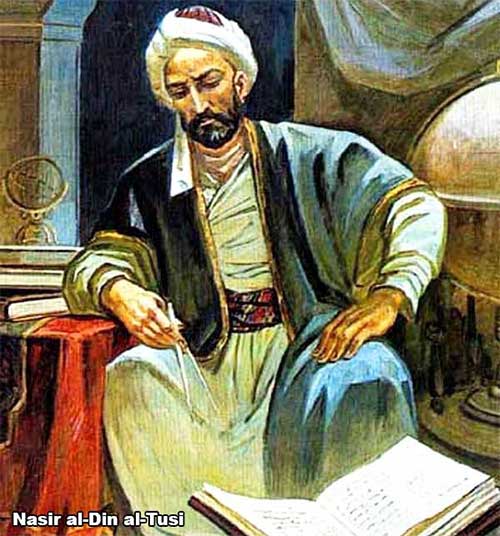
Muhammad ibn al-Qasim remains one of the most celebrated figures in early Islamic history, known for his remarkable military campaigns and enduring legacy. As a young general, he achieved what many seasoned leaders could only dream of accomplishing. His conquests expanded the Umayyad Caliphate's influence and left an indelible mark on the regions he touched. From Muhammad ibn al-Qasim, born into a family of prominence to his untimely demise, his life was a blend of ambition, courage, and strategic brilliance. This article delves into his achievements, personal life, and the controversies surrounding his death, shedding light on why his story captivates historians and enthusiasts alike.

Early Life and Rise to Prominence
Muhammad ibn al-Qasim was born in 695 CE in Ta'if, a city located in present-day Saudi Arabia. His family belonged to the prestigious Banu Thaqif tribe, which played a significant role in the early Islamic community. His father, al-Qasim ibn Muhammad ibn al-Hakam, was a respected figure, and this lineage provided Muhammad with access to influential circles from a young age. Growing up, he was exposed to the political and military strategies of the time, shaping him into a leader with both vision and discipline.
At just 17 years old, Muhammad ibn al-Qasim was entrusted with leading a military campaign to conquer the region of Sindh in modern-day Pakistan. This decision was driven by the need to address piracy and secure trade routes for the Umayyad Caliphate. Despite his youth, Muhammad demonstrated extraordinary leadership skills, earning the trust of Caliph Al-Walid I. His appointment began a series of bold and calculated moves defining his career.
Muhammad ibn al-Qasim Died A Controversial End
The reason for Muhammad bin Qasim's death has long intrigued historians. After successfully conquering Sindh and establishing a stable administration, Muhammad ibn al-Qasim faced unexpected challenges upon the death of Caliph Al-Walid I. The new caliph, Sulayman ibn Abd al-Malik, had different priorities and viewed Muhammad's successes suspiciously. Political rivalries and shifting allegiances led to Muhammad's recall to the capital, where he was imprisoned and treated harshly.
Historical accounts suggest that Muhammad ibn al-Qasim died under tragic circumstances, possibly as a result of torture or execution. While the exact details remain unclear, his death at such a young age cut short a promising career. The loss of such a talented leader left a void in the Umayyad military structure and raised questions about the fairness of the political system at the time.
Muhammad bin Qasim History in Urdu A Cultural Perspective
Muhammad bin Qasim's history in Urdu often portrays him as a hero who brought justice and stability to the people of Sindh. In South Asian culture, his conquest was a turning point that introduced Islamic governance and cultural exchange. Urdu literature frequently highlights his bravery and administrative skills, depicting him as a symbol of resilience and determination.
This cultural perspective emphasizes his military achievements and his efforts to integrate local communities into the broader Islamic framework. Stories of his interactions with local rulers and his respect for their traditions are often recounted in Urdu narratives. These accounts reflect how Muhammad ibn al-Qasim's legacy transcends historical records, becoming a part of the region's collective memory.
Personal Life and Family Ties
Muhammad bin Qasim's family tree reveals connections to some of the most influential families of early Islamic society. His grandfather, Muhammad ibn al-Hakam, was a notable companion of the Prophet Muhammad, adding a layer of religious prestige to his lineage. These familial ties likely contributed to his rapid rise in the political and military spheres.
There is limited information about Muhammad bin Qasim's wife. Still, it is believed that he married into a family of high standing, further solidifying his position within the elite circles of the Umayyad Caliphate. His relationships were often intertwined with his professional duties, reflecting the close-knit nature of leadership during that era.
Dreams and Ambitions of Muhammad ibn al-Qasim
Muhammad Qasim's dreams extended beyond mere conquests; they encompassed a vision of unity and progress. He aspired to create a harmonious society where diverse cultures could coexist under a single administration. His policies in Sindh reflected this ideal, as he implemented systems that respected local customs while introducing Islamic principles.
One of his notable achievements was establishing a robust legal and taxation framework that benefited both the conquerors and the conquered. This approach earned him the loyalty of many local leaders and set a precedent for future Islamic rulers. Abu Bakr al-Razi, a later scholar, would go on to analyze such administrative strategies, highlighting their effectiveness in fostering stability.
Legacy and Historical Significance
Muhammad ibn al-Qasim's legacy is a testament to his ability to balance ambition with pragmatism. His conquest of Sindh opened the door for further Islamic expansion into South Asia, lasting and impacting the region's history. While his military campaigns are often celebrated, it is equally important to recognize his contributions to governance and cultural integration.
Despite the controversies surrounding his death and the political intrigues that overshadowed his later years, Muhammad ibn al-Qasim's achievements remain undeniable. His story reminds us of the complexities of leadership and the delicate balance between personal aspirations and external pressures.
Conclusion A Leader Remembered
The tale of Muhammad ibn al-Qasim is one of triumph, tragedy, and timeless influence. From Muhammad ibn al-Qasim's birth into privilege to his brave conquests and eventual downfall, his life encapsulates the highs and lows of leadership in a rapidly changing world. Whether exploring Muhammad bin Qasim's family tree or analyzing his contributions to history, it becomes clear that his legacy is multifaceted and enduring.
By understanding his dreams, decisions, and the challenges he faced, we gain insight into the qualities that define him as a leader. His story continues to inspire, reminding us of the courage to pursue greatness and the resilience needed to overcome adversity. Muhammad ibn al-Qasim's name lives on as a historical figure and a symbol of ambition and perseverance.
#MuhammadIbnAlQasim #MuhammadBinQasim



